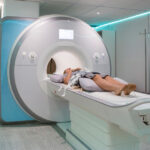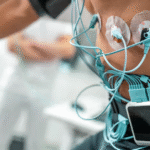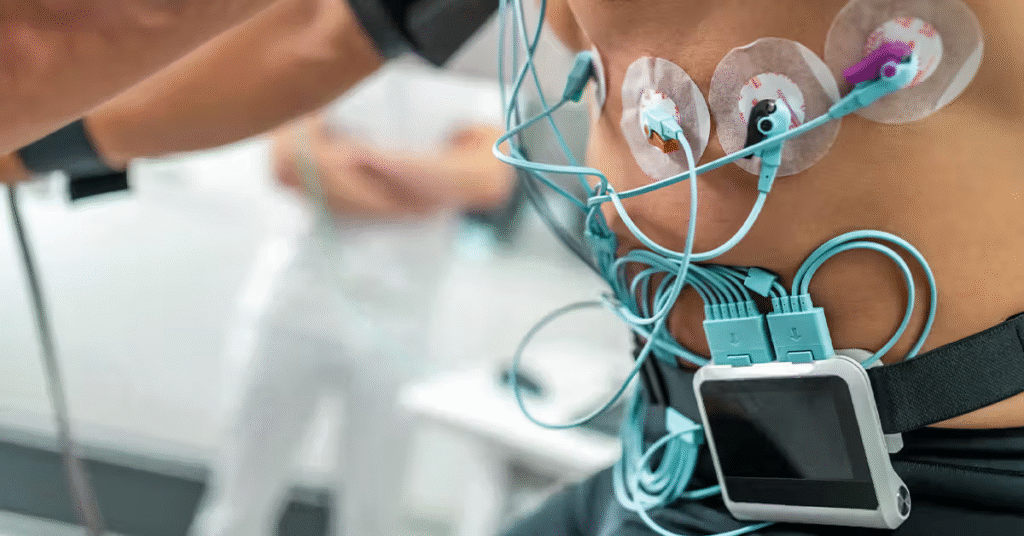Cardiac stress testing, often referred to as exercise stress testing, is a diagnostic procedure that allows us to assess how well your heart performs during physical exertion. This test is intended to uncover potential issues with blood flow to the heart muscle that may not be noticeable when you are at rest. It is especially beneficial for individuals who experience chest pain, shortness of breath, or have risk factors for coronary artery disease (CAD), such as high blood pressure, elevated cholesterol levels, or a family history of heart problems. This test is crucial as it offers important insights into your heart’s capacity to manage stress, aiding in the detection of blockages and evaluating your overall cardiovascular health.
Procedure Overview
During a cardiac stress test, you’ll typically walk on a treadmill while being monitored. Electrodes will be placed on your chest to record your heart’s electrical activity (ECG). Your blood pressure and heart rate will also be monitored throughout the test. The intensity of the exercise will gradually increase until you reach a target heart rate or experience symptoms. The test usually takes around 30-45 minutes, including preparation and monitoring. We use advanced ECG monitoring systems and stress testing equipment to ensure accurate and reliable results.
Benefits & Importance
Cardiac stress testing offers several advantages in diagnosing and managing heart conditions. It helps identify blockages in the coronary arteries that might not be visible during a resting ECG. This is crucial for detecting CAD early and preventing heart attacks. It also helps assess the severity of existing heart conditions and determine the effectiveness of treatment plans. By evaluating your heart’s response to stress, it provides valuable insights into your cardiovascular fitness and overall heart health.
Preparation & Requirements
Before the stress test, you can have a light meal. It’s important to wear comfortable clothing and shoes suitable for exercise. You’ll also need to inform us about any medications you’re taking, as some may need to be temporarily discontinued. During the test, you may experience shortness of breath, chest pain, or fatigue, which are normal responses to exercise. After the test, you’ll be monitored until your heart rate and blood pressure return to normal.
Risks & Considerations
While cardiac stress testing is generally safe, there are potential risks, including chest pain, dizziness, and shortness of breath. In rare cases, it can trigger a heart attack or an irregular heartbeat. The test is not recommended for individuals with severe heart conditions, such as unstable angina or recent heart attack. It’s crucial to discuss your medical history and any concerns with your doctor to ensure the procedure is appropriate for you.
Understanding how your heart responds to stress is vital for maintaining good cardiovascular health. A cardiac stress test can provide valuable insights into your heart’s function, allowing for proactive management and lifestyle changes.














